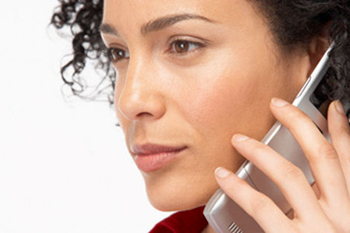In my last post I mentioned the pleasure I take in a great voice mail greeting, and a number of you wrote in to ask, “What made it so good?” Consequently, I put together a list of things I love—and don’t love—to hear:
 Why is this important? Because your voice mail message is often the first contact a new person has with you— it’s an opportunity to impress someone right from the start. Despite this, I hear far, far too many voice mails that are less than memorable– and more than a few that do the person an active disservice.
Why is this important? Because your voice mail message is often the first contact a new person has with you— it’s an opportunity to impress someone right from the start. Despite this, I hear far, far too many voice mails that are less than memorable– and more than a few that do the person an active disservice.
For example, one day I got a call from a client who had just promoted a mid-level manager to a top spot. I asked them if there was anything in particular I should be aware of. Well, they said, he’s smart and enthusiastic—which is great—but we’re worried he doesn’t come across as ‘manager material.’
Next, I called his office to make an appointment. Here’s what his voicemail message sounded like: “HI THIS IS JOE I’M NOT HERE LEAVE A MESSAGE OR CALL LEWIS AT 212…” Instead of sounding competent, calm, and in command, he sounded like he was trying to find his way out of a burning building.
So how should you go about recording your voice mail message?
- You want to record it while standing and smiling. This will give your voice warmth and energy. If you sound even slightly flat/tired/anxious/impatient/distracted/drunk/flirtatious or like you are speaking to children, re-do it.
- You do not want any background or ambient noise. No cars, music, dogs barking, telephones ringing, etc.
- You want to inhale before you begin to record and speak on an exhalation as you begin to leave your message. This gives your voice resonance and authority. NOTE PLEASE that you want to inhale before you hit record. We don’t want to hear you sucking in a big breath before you start speaking.
- You want to be sure that your name and any alternate numbers and—should you have one– your assistant’s name and number are distinctly articulated. If you or they have an unusual name, you will want to speak even more slowly.
- Please do not leave your alternate number so quicklythat I have to call you back six times to write it down. Yes, it’s familiar to you. It’s not familiar to me.
- If you are a business, and this message refers to your“business hours” please articulate exactly what those are. For example, “Please call back between 9 a.m. and 5 p.m. Eastern Standard Time.”
- You want to make sure it is current. Updating it should be the first thing you do on returning from a business trip or vacation.
- Among the many benefits of doing this is the fact that once it is done, you will always have that recording of you as your best self—even on days when you might, perhaps, not be.
Frances Cole Jones
